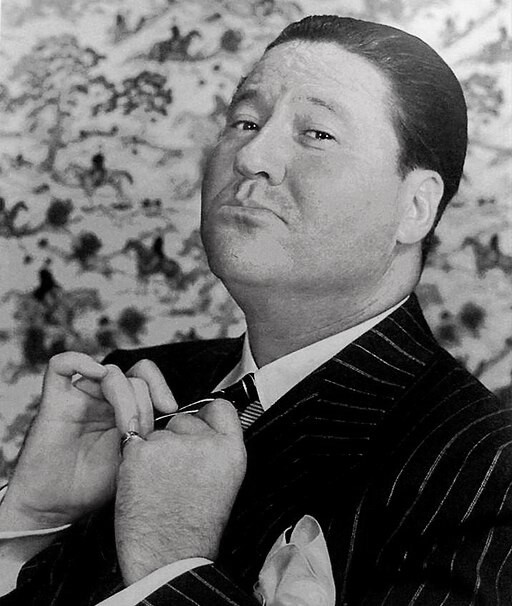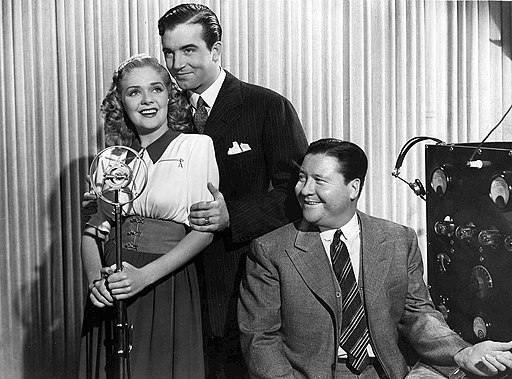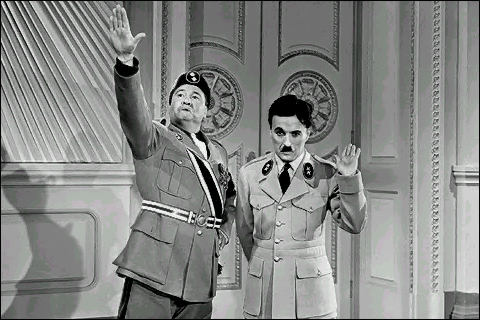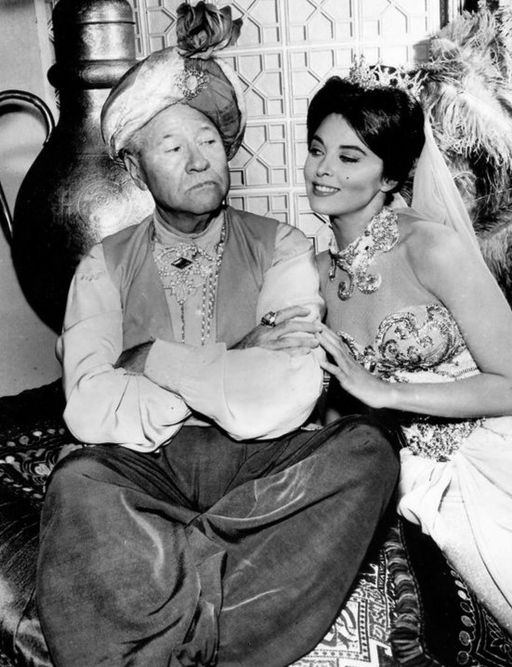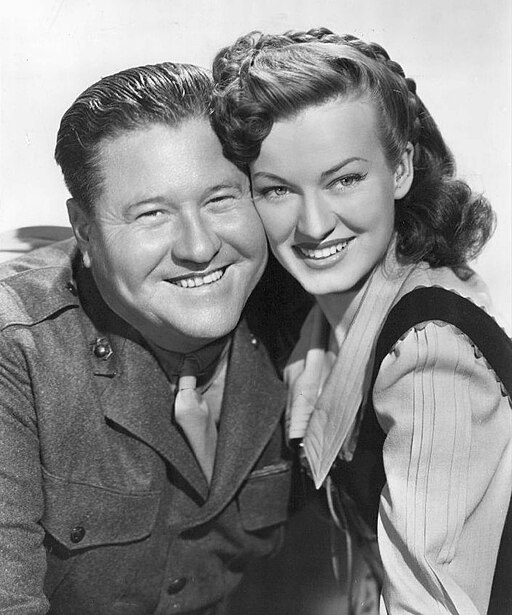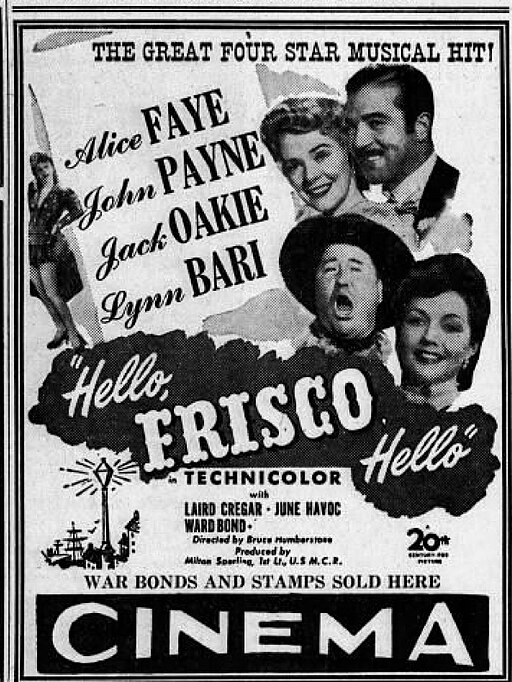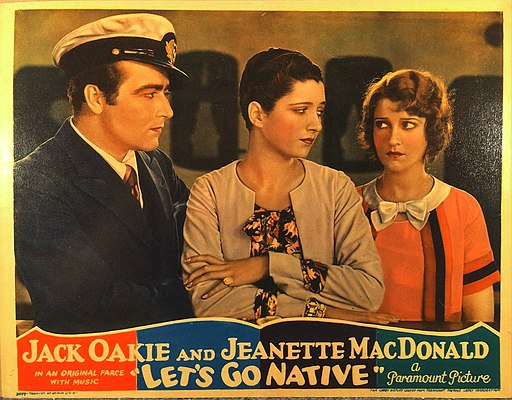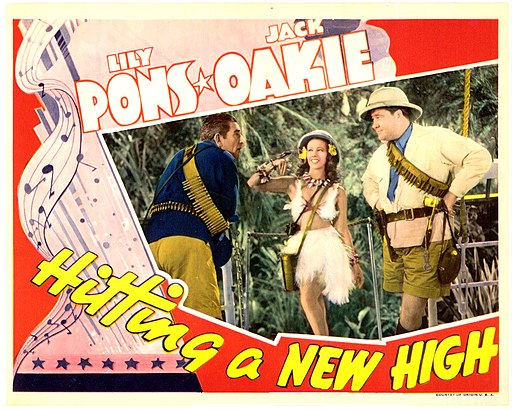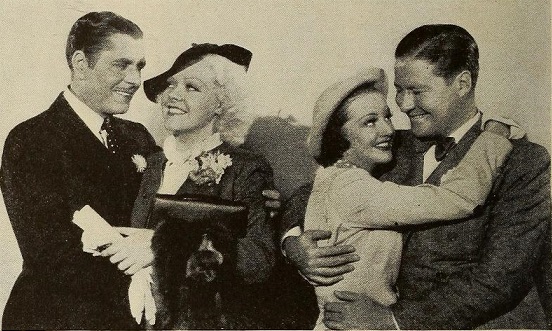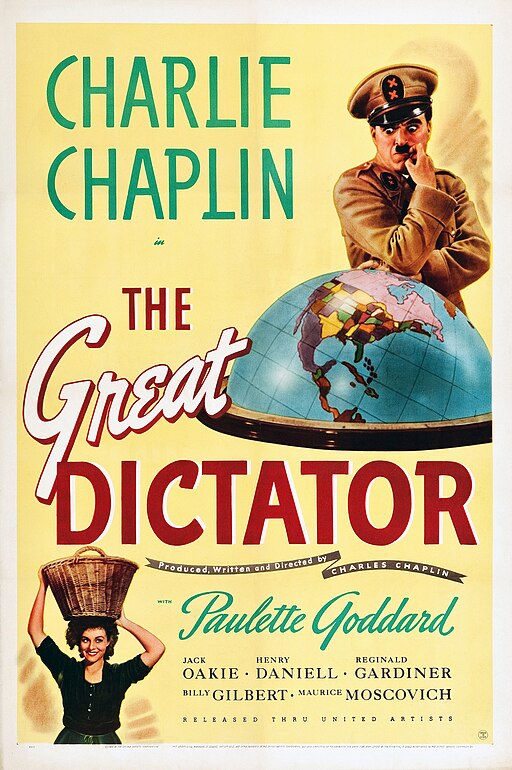Jack Oakie
back| Full Name | Lewis Delaney Offield |
| Stage Name | Jack Oakie |
| Born | November 12, 1903 |
| Birthplace | Sedalia, Missouri, United States |
| Died | January 23, 1978 |
| Buried | Forest Lawn Memorial Park, Los Angeles, California, United States |
| Married to | Victoria Horne (married 1950 until his death in 1978) |
| Children | None |
| Notable films | It Happened Tomorrow (1944) - The Great Dictator (1940) - Lover Come Back (1946) |
Jack Oakie
Hollywood's Affable Everyman
Jack Oakie's journey into the limelight began in the 1920s, initially with bit parts and gradually moving to leading roles in the 1930s. His breakout role came in the 1930 film "The Texas Ranger." He was renowned for his comedic timing and affable screen presence, often portraying lovable and slightly blundering characters.
Oakie's career spanned both the silent film era and the transition to "talkies," where he easily adapted due to his expressive acting style and clear voice. Throughout the 1930s and 1940s, he became a popular figure in comedies, musicals, and even dramas.
Related
Jack Oakie (1903 - 1978)
Biography and Overview of his Career
Jack Oakie's life story is a fascinating journey from humble beginnings to Hollywood stardom, marked by his charismatic screen presence and personal warmth.
Lewis Delaney Offield, who would later be known as Jack Oakie, was born on November 12, 1903, in Sedalia, Missouri. He was the son of a grain dealer and grew up in a middle-class family. From a young age, Oakie displayed a knack for entertainment, often performing in school plays and showing an early interest in the burgeoning world of cinema.
Oakie's journey to stardom began when his family moved to Los Angeles. His initial foray into the film industry was humble, starting with minor roles in silent films during the 1920s. He quickly made a name for himself with his exuberant personality and natural comic timing, which became his signature style. As the film industry transitioned to sound, Oakie's career took off, as his expressive style and clear voice were well-suited to "talkies."
He gained significant popularity in the 1930s, particularly for his roles in comedies and musicals. His affable, everyman persona resonated with audiences, making him a beloved figure of the era.
Marriages and Personal Life
In 1950, Oakie married actress Victoria Horne, who was best known for her role in the film "Harvey." Their marriage was a loving and enduring partnership that lasted until Oakie's death. The couple did not have any children.
Beyond his film career, Oakie was passionate about supporting the arts and education. He was known for his philanthropic efforts, contributing to various causes and nurturing young talent. This passion for supporting the arts was a defining aspect of his off-screen life.
Death and Legacy
Jack Oakie passed away on January 23, 1978, in Los Angeles, California, at the age of 74. The cause of death was atherosclerotic heart disease, a common heart condition. He was laid to rest at Forest Lawn Memorial Park in Los Angeles.
His death marked the end of an era in Hollywood, but his legacy lived on. Oakie's contributions to the film industry were immortalized with a star on the Hollywood Walk of Fame. Furthermore, the Jack Oakie and Victoria Horne Oakie Charitable Foundation, established in his and his wife's memory, continues to support the arts and education, reflecting their lifelong commitment to these fields.
Jack Oakie in "Colleen" (1936):
Notable Movies featuring Jack Oakie:
1920s
- 1923: "His Children's Children" - A silent film where Oakie had a minor role, detailing the story of a family's rise and fall in society.
- 1929: "Fast Company" - An early sound film where Oakie played a supporting role in a story about rivalry in the world of advertising.
1930s
- 1930: "The Social Lion" - Oakie stars as a small-town man mistaken for a millionaire in a big city.
- 1932: "Million Dollar Legs" - A comedic sports film where Oakie plays a brush salesman involved in Olympic games in a fictional country.
- 1933: "Sitting Pretty" - A musical comedy featuring Oakie as a songwriter trying to break into Broadway.
- 1934: "The Cat's-Paw" - Oakie plays a naive missionary who unwittingly becomes a pawn in a corrupt political game.
- 1935: "The Call of the Wild" - An adaptation of Jack London’s novel, with Oakie in a key supporting role.
- 1938: "Little Miss Broadway" - A musical drama where Oakie's character helps a young girl in her quest to save her grandfather's hotel.
1940s
- 1940: "The Great Dictator" - A Chaplin classic satirizing fascism, with Oakie brilliantly playing a Mussolini-like dictator.
- 1944: "Bowery to Broadway" - A musical showcasing Oakie's talent in a story about the rise of a theatrical producer.
- 1946: "Lover Come Back" - A romantic comedy with Oakie in a notable supporting role.
1950s
- 1950: "The Jackpot" - A comedy about a man who wins a slew of prizes on a radio quiz show, with Oakie in a supporting role.
- 1956: "Around the World in 80 Days" - An adventure film where Oakie makes a cameo appearance in this star-studded adaptation of Jules Verne’s novel.
1960s
- 1963: "It's a Mad, Mad, Mad, Mad World" - Oakie’s final film, a comedy about a group of strangers competing to find a hidden fortune.
Analysis of Jack Oakie’s Acting Style:
Jack Oakie's acting style was a delightful amalgamation of charm, humor, and an everyman appeal, which made him a cherished figure in Hollywood, particularly during the 1930s and 1940s. His performances were characterized by several distinct features:
Comedic Flair
Oakie was predominantly known for his comedic roles. His style was rooted in the vaudeville tradition, marked by exaggerated expressions and physical comedy. He had a natural ability to deliver lines with a perfect comedic timing, often turning even mundane dialogues into something humorous. This talent made him a go-to actor for roles that required a light-hearted and humorous touch.
Expressive Physicality
In the era of transition from silent films to talkies, Oakie's background in silent cinema greatly influenced his acting. He utilized expressive body language and facial expressions to convey emotions and humor, a skill that helped him smoothly transition into the sound era. His animated gestures and the ability to use his physicality to communicate added an extra layer of charm to his characters.
Affable Screen Persona
Oakie often portrayed likable, approachable characters, making him relatable to the average movie-goer. Whether he was playing a naive young man or a bumbling sidekick, there was an inherent warmth and likability in his portrayals. This affability was not just limited to his roles but was a part of his off-screen persona as well, endearing him to both his audience and colleagues in the industry.
Versatility
While comedy was his forte, Oakie was not confined to it. He showed remarkable versatility, taking on roles in musicals, dramas, and even action films. His role in "The Great Dictator" showcased his ability to handle satirical content, proving that his talents extended beyond straightforward comedic roles.
Everyman Appeal
One of Oakie's most significant contributions to film was his ability to embody the 'everyman' character. His roles often represented the average American, with all the quirks and imperfections, making his characters resonate with the audience. He had a knack for portraying characters that, while flawed, were fundamentally good-hearted and relatable.
Vocal Delivery
Oakie's voice was another asset in his acting toolkit. He had a distinctive, clear voice which he used effectively to deliver witty dialogues and songs alike. His vocal expressiveness added depth to his on-screen characters, making them more dynamic and engaging.
In summary, Jack Oakie's acting style was a unique blend of comedic genius, expressive physicality, and a relatable persona. His versatility as an actor allowed him to transition seamlessly between genres, leaving a lasting impression in the world of cinema. His legacy in film is not just in the roles he played but also in the joyful and authentic approach he brought to his craft.
Awards and Recognition:
Jack Oakie's career in Hollywood, spanning several decades, was marked by notable performances, but his recognition in terms of awards and nominations was relatively limited, especially when compared to modern actors. This was partly due to the era he worked in, where the award systems like the Oscars were in their infancy and had fewer categories than today.
Academy Award Nomination (1941)
Oakie received an Academy Award nomination for Best Actor in a Supporting Role for his portrayal of Benzino Napaloni in Charlie Chaplin's "The Great Dictator" (1940). This role, where he played a comical version of Italian dictator Benito Mussolini, is often considered one of his finest performances. The nomination was particularly significant because it recognized Oakie's ability to blend comedy with a satirical edge in a politically charged film.
Honors and Recognitions:
- Hollywood Walk of Fame Star
While not an award in the traditional sense, Oakie's contribution to the film industry was commemorated with a star on the Hollywood Walk of Fame. This honor is a testament to his impact and popularity in Hollywood.
- Legacy Awards
Posthumously, the legacy of Jack Oakie has been honored through various awards and scholarships in his name. The Jack Oakie and Victoria Horne Oakie Charitable Foundation continues to support educational initiatives and awards, particularly in the fields of comedy and musical theatre, reflecting Oakie's own career and passions.
Significance of his Part in “The Great Dictator”:
"The Great Dictator," released in 1940, holds a significant place in Jack Oakie's career for several reasons. This film, written and directed by Charlie Chaplin, was not only a critical and commercial success but also marked a pivotal point in Oakie's career due to its context, content, and his performance.
Political Context and Boldness
- Era of World War II: The film was released during a tumultuous time, as World War II was underway. "The Great Dictator" was a bold satirical attack on fascism, with Adolf Hitler (portrayed by Chaplin as "Adenoid Hynkel") being a primary target.
- Risks Involved: At the time of its release, making a film that directly satirized and criticized Hitler and Mussolini was a risk, both politically and commercially. Oakie's involvement in such a project demonstrated his willingness to participate in a film that carried significant political weight.
Oakie's Role and Performance
- Character of Benzino Napaloni: Oakie played the character of Benzino Napaloni, a parody of Italian dictator Benito Mussolini. This role allowed Oakie to showcase his comedic talents in a setting that was not just for entertainment but also carried a strong political message.
- Critical Acclaim: His performance was critically acclaimed. Oakie's ability to balance humor with a subtle critique of fascist leadership was particularly noted. His scenes with Chaplin are among the film's highlights, showcasing a comedic chemistry and timing that added depth to the film’s satire.
Career Impact
- Broadened Acting Range: "The Great Dictator" allowed Oakie to break away from the more straightforward comedic roles he was known for, displaying his capacity to handle complex, satirical content.
- Academy Award Nomination: For his role, Oakie received an Academy Award nomination for Best Supporting Actor. This recognition underscored his talent and versatility as an actor.
- Legacy and Recognition: The film remains a classic, often cited in discussions about cinema's role in political discourse. Oakie's performance in it is a significant part of his legacy, showcasing his contribution to a landmark film in Hollywood history.
Full list of Movies with Jack Oakie:
1920s
- 1923: His Children's Children
- 1928: Finders Keepers
- 1929: The Dummy
- 1929: Fast Company
- 1929: Chinatown Nights
- 1929: Sweetie
- 1929: The Wild Party
- 1929: The Saturday Night Kid
1930s
- 1930: Let's Go Native
- 1930: Paramount on Parade
- 1930: Hit the Deck
- 1930: Sea Legs
- 1930: The Social Lion
- 1930: The Sap from Syracuse
- 1930: The Lottery Bride
- 1930: Madam Satan
- 1931: June Moon
- 1931: Dude Ranch
- 1931: The Gang Buster
- 1931: Touchdown
- 1932: Sky Bride
- 1932: Make Me a Star
- 1932: Million Dollar Legs
- 1932: If I Had a Million
- 1933: Sitting Pretty
- 1933: College Humor
- 1933: Too Much Harmony
- 1933: Alice in Wonderland
- 1934: Murder at the Vanities
- 1934: Looking for Trouble
- 1934: College Rhythm
- 1934: The Cat's-Paw
- 1935: The Night Is Young
- 1935: King of Burlesque
- 1935: The Call of the Wild
- 1935: People Will Talk
- 1936: Colleen
- 1936: Mysterious Crossing
- 1936: Florida Special
- 1937: Super-Sleuth
- 1937: The Toast of New York
- 1938: Hold That Co-ed
- 1938: Little Miss Broadway
- 1939: The Great Victor Herbert
- 1939: The Big Guy
1940s
- 1940: Tin Pan Alley
- 1940: The Great Dictator
- 1941: Navy Blues
- 1941: Rise and Shine
- 1942: The Pied Piper
- 1942: Iceland
- 1942: Hello, Frisco, Hello
- 1943: They Got Me Covered
- 1944: The Great Moment
- 1944: Bowery to Broadway
- 1944: It Happened Tomorrow
- 1945: Where Do We Go from Here?
- 1946: Lover Come Back
- 1947: The Life of Riley
- 1948: When My Baby Smiles at Me
- 1949: Thieves' Highway
- 1949: Sorrowful Jones
1950s
- 1950: The Jackpot
- 1951: The Guy Who Came Back
- 1952: The Bushwhackers
- 1956: Around the World in 80 Days
1960s
- 1963: It's a Mad, Mad, Mad, Mad World

